Introduction:
Having luscious, healthy hair is a desire shared by many women. However, hair growth is affected by factors such as genetics, hormonal changes, and poor nutrition – all of which can often lead to hair loss or thinning. In today’s fast-paced world, where stress, pollution, and unhealthy lifestyle choices are rampant, achieving and maintaining optimal hair health can be a challenge. Fortunately, there are nutritional supplements that can help promote hair growth and improve hair health. In this blog, we will discuss some of the best nutritional supplements for hair growth in women, backed by scientific research and expert recommendations.
Statistics and Facts:
Before delving into the best nutritional supplements for hair growth, let’s look at some statistics and facts related to hair loss in women:
- According to the American Academy of Dermatology, hair loss affects approximately 40% of women by the age of 40. (Source: https://www.aad.org/media/stats/conditions/hair-loss)
- A study published in the Journal of Clinical and Aesthetic Dermatology found that nutritional deficiencies, including deficiencies in vitamins and minerals, can contribute to hair loss in women. (Source: https://www.ncbi.nlm.nih.gov/pmc/articles/PMC6380979/)
- Research published in the Archives of Dermatological Research suggests that certain nutritional supplements can help promote hair growth by providing essential nutrients to the hair follicles. (Source: https://pubmed.ncbi.nlm.nih.gov/25008014/)
More Statistics and Interesting Facts:
- According to the American Hair Loss Association, hair loss affects approximately 40% of women by age 50, and by age 65, nearly two-thirds of women experience hair loss.
- Iron deficiency is one of the most common nutrient deficiencies worldwide, and it can contribute to hair loss in women. In fact, studies suggest that up to 30% of women with hair loss may have an iron deficiency.
- Omega-3 fatty acids are essential fats that play a crucial role in overall health, including hair health. According to a study published in the Journal of Cosmetic Dermatology, omega-3 supplementation has been shown to improve hair density and thickness in women with thinning hair.
- Zinc is an essential mineral that is involved in many cellular processes, including those that support hair growth. Research suggests that zinc deficiency may be associated with hair loss, and supplementation may help improve hair growth.
- Vitamin D is known as the “sunshine vitamin” because our bodies produce it when our skin is exposed to sunlight. However, many people, especially those with limited sun exposure, may have vitamin D deficiency, which can affect hair health. Studies suggest that vitamin D supplementation may help improve hair growth.
- Saw palmetto is a popular herbal supplement that has been traditionally used for its potential benefits in promoting prostate health. However, research also suggests that saw palmetto may have potential benefits in promoting hair growth in women with androgenetic alopecia, a common form of hair loss.
- Collagen is the most abundant protein in our bodies and plays a crucial role in maintaining the health and structure of our skin, nails, and hair. Research has shown that collagen supplementation can improve hair growth and thickness in women with thinning hair.
- Biotin, also known as vitamin B7, is a water-soluble vitamin that is often recommended for promoting hair growth and improving hair health. A study published in the Journal of Clinical and Aesthetic Dermatology found that biotin supplementation improved hair growth in women with thinning hair.
- Horsetail extract is a natural supplement that is rich in silica, a mineral that is essential for the formation of collagen and supports hair health. Research has shown that horsetail extract supplementation can improve hair density and thickness in women with thinning hair.
- Keratin is a protein that makes up the structural component of hair, and it is often used in hair care products and supplements for its potential benefits in promoting hair strength and thickness. Studies suggest that keratin supplementation can help improve hair health and reduce hair loss in women.
- According to a survey conducted by the National Center for Complementary and Integrative Health, about 33% of adults in the United States use dietary supplements, including vitamins and minerals, for various health purposes, including hair health.
- Hair growth is influenced by various factors, including genetics, hormonal changes, nutrient deficiencies, and environmental factors. Nutritional supplements can play a role in supporting hair health by providing essential nutrients that are important for hair growth and preventing hair loss.
- Hair loss can have a significant impact on a person’s emotional well-being and self-esteem. Many women experiencing hair loss may feel self-conscious, anxious, and distressed about their appearance. Therefore, finding effective ways to promote hair growth and prevent hair loss can greatly benefit the overall well-being of women.
- Nutritional supplements are not a substitute for a healthy diet and lifestyle. It’s important to maintain a balanced diet, stay hydrated, practice good hair care habits, and manage stress levels for optimal hair health.
- It’s essential to consult with a healthcare provider or a registered dietitian before starting any new supplement regimen, especially if you are pregnant, breastfeeding, have any underlying health conditions, or are taking medications. They can provide personalized recommendations based on your individual needs and health status.
Now, let’s explore!
10 Effective Natural Supplements for Hair Growth in Women include:
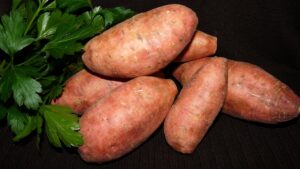 Biotin:
Biotin:
Biotin, also known as vitamin B7, is a water-soluble vitamin that plays a crucial role in the growth and maintenance of healthy hair. It helps in the production of keratin, a protein that makes up the structure of hair, and is involved in the metabolism of fatty acids, which are essential for hair growth. Biotin supplements are commonly recommended for women experiencing hair loss or thinning.
Studies have shown that biotin supplementation can improve hair thickness and strength, and reduce hair loss in women with thinning hair. A randomized, double-blind, placebo-controlled trial published in the Journal of Clinical and Aesthetic Dermatology found that women who took biotin supplements for 90 days experienced significant improvement in hair thickness compared to the placebo group.
Recommended dosage: The recommended dosage of biotin for hair growth is 2.5 to 5 mg per day. However, it’s important to consult with a healthcare provider before starting any new supplement regimen, as individual needs may vary.
 Collagen:
Collagen:
Collagen is a protein that makes up a significant portion of the hair structure, providing strength and elasticity to the hair shaft. It is also important for maintaining the health of the hair follicles. As we age, the production of collagen decreases, which can affect the health and thickness of our hair.
Supplementing with collagen can help promote hair growth by providing the necessary amino acids and proteins needed for hair health. A study published in the Journal of Cosmetic Dermatology found that collagen supplementation significantly increased hair diameter, overall hair mass, and hair density in women with thinning hair.
Recommended dosage: The recommended dosage of collagen for hair growth is 2.5 to 5 grams per day. It’s best to choose a high-quality collagen supplement from a reputable brand for optimal results.
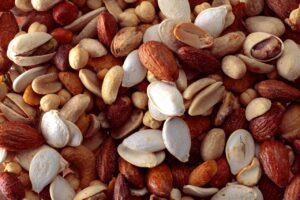 Vitamins D and E:
Vitamins D and E:
Vitamins D and E are essential vitamins that play a crucial role in hair health. Vitamin D helps in the absorption of calcium, which is important for hair growth, while vitamin E is a powerful antioxidant that helps protect the hair follicles from oxidative damage. Both of these vitamins are known to promote healthy hair growth and prevent hair loss.
Research published in the International Journal of Molecular Sciences has shown that vitamin D receptor (VDR) and vitamin E levels are significantly lower in women with hair loss compared to those with normal hair growth. Supplementation with vitamins D and E can help replenish these deficiencies and promote optimal hair health.
Recommended dosage: The recommended dosage of vitamin D for hair growth is 1000 to 2000 IU per day, and the recommended dosage of vitamin E is 15 to 30 mg per day. It’s important to consult with a healthcare provider to determine the right dosage for your individual needs.
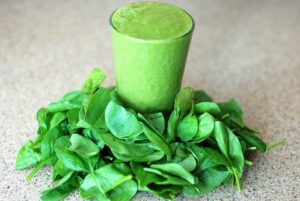 Zinc:
Zinc:
Zinc is a mineral that plays a crucial role in various physiological processes, including hair growth. It is involved in the production of DNA and RNA, which are essential for cell division and growth, including the cells in the hair follicles. Zinc also helps regulate hormonal balance, which can affect hair growth.
A study published in the Annals of Dermatology found that zinc supplementation significantly increased hair density and thickness in women with hair loss. Another study published in the Journal of Dermatological Treatment showed that zinc supplementation improved hair growth in women with telogen effluvium, a type of hair loss characterized by increased shedding of hair.
Recommended dosage: The recommended dosage of zinc for hair growth is 8 to 11 mg per day. However, it’s important to consult with a healthcare provider before starting zinc supplementation, as excessive intake of zinc can have adverse effects.
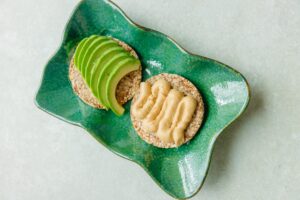 Omega-3 Fatty Acids:
Omega-3 Fatty Acids:
Omega-3 fatty acids are essential fatty acids that play a crucial role in maintaining overall health, including hair health. They are known for their anti-inflammatory properties and can help reduce inflammation in the scalp, which can contribute to hair loss.
Research published in the Journal of Cosmetic Dermatology has shown that omega-3 fatty acid supplementation can improve hair density and thickness in women with thinning hair. Omega-3 fatty acids also help nourish the hair follicles, promote healthy scalp, and prevent dryness and flakiness, which can contribute to hair loss.
Recommended dosage: The recommended dosage of omega-3 fatty acids for hair growth is 1000 to 2000 mg per day. It’s important to choose a high-quality omega-3 supplement from a reputable brand, such as fish oil or flaxseed oil, for optimal results.
 Iron:
Iron:
Iron is a mineral that is essential for the production of hemoglobin, a protein that carries oxygen to the cells, including the hair follicles. Iron deficiency, also known as anemia, can lead to poor hair health, as the hair follicles require oxygen and nutrients for optimal growth.
A study published in the Journal of Korean Medical Science found that iron deficiency is associated with hair loss in women of reproductive age. Iron supplementation can help replenish iron stores in the body and improve hair growth.
Recommended dosage: The recommended dosage of iron for hair growth is 18 to 27 mg per day, depending on age and menstrual status. However, it’s important to consult with a healthcare provider before starting iron supplementation, as excessive intake of iron can have adverse effects.
 Saw Palmetto:
Saw Palmetto:
Saw palmetto is a natural supplement derived from the berries of the saw palmetto tree. It is commonly used to treat conditions related to hormonal imbalance, such as benign prostatic hyperplasia (BPH) and androgenetic alopecia, a type of hair loss caused by hormonal factors.
Research has shown that saw palmetto can help inhibit the conversion of testosterone to dihydrotestosterone (DHT), a hormone that can contribute to hair loss. A study published in the Journal of Cutaneous and Aesthetic Surgery found that saw palmetto supplementation improved hair growth in women with androgenetic alopecia.
Recommended dosage: The recommended dosage of saw palmetto for hair growth is 160 to 320 mg per day, standardized to contain at least 85% fatty acids and sterols. It’s important to choose a reputable brand and consult with a healthcare provider before starting saw palmetto supplementation, as it may interact with certain medications and have potential side effects.
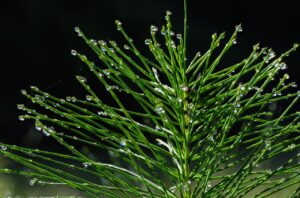 Horsetail Extract:
Horsetail Extract:
Horsetail extract is a natural supplement derived from the horsetail plant, also known as Equisetum arvense. Horsetail extract is rich in silica, a mineral that is essential for the formation of collagen, a protein that provides structural support to the hair follicles.
Research published in the Journal of Cosmetic Dermatology has shown that horsetail extract supplementation can improve hair density and thickness in women with thinning hair. Horsetail extract also has antioxidant properties and can help reduce inflammation in the scalp, which can contribute to hair loss.
Recommended dosage: The recommended dosage of horsetail extract for hair growth is 500 to 1000 mg per day, standardized to contain at least 5% silica. It’s important to choose a reputable brand and consult with a healthcare provider before starting horsetail extract supplementation, as it may interact with certain medications and have potential side effects.
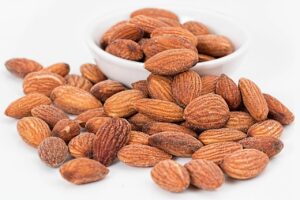 Keratin:
Keratin:
Keratin is a type of protein that is naturally present in hair, nails, and skin. It is the main structural component of hair and helps to maintain its strength, elasticity, and overall health. Keratin also protects the hair from damage caused by environmental factors such as sun exposure and chemical treatments.
Eating a diet rich in protein can help provide the necessary building blocks for keratin production in the body. Foods that are high in protein include lean meats, fish, eggs, and dairy products. Plant-based sources of protein such as legumes, nuts, and seeds can also contribute to keratin production.
Supplementing with keratin may also help improve the health and appearance of hair. A study published in the Journal of the International Society of Sports Nutrition found that taking a keratin supplement for eight weeks improved hair strength and elasticity in women with damaged hair.
Recommended dosage: The recommended dosage of keratin for hair growth is typically around 500 milligrams per day. However, it’s important to note that there is limited research on the long-term effects of keratin supplementation, and some experts recommend caution when using these supplements.
 Overview:
Overview:
Achieving healthy and luscious hair requires a holistic approach, and nutritional supplements can play a crucial role in promoting hair growth and preventing hair loss in women. The 10 nutritional supplements discussed in this blog, including biotin, collagen, horsetail extract, saw palmetto, iron, omega-3 fatty acids, zinc, vitamins D and E, and keratin, are some of the best options to consider for promoting optimal hair health.
However, it’s important to note that not all supplements may be suitable for everyone, and it’s essential to consult with a healthcare provider before starting any new supplement regimen, especially if you have any underlying health conditions or are taking medications. Your healthcare provider can assess your individual needs, recommend the right dosages, and monitor your progress to ensure safety and effectiveness.
In addition to supplementation, it’s important to maintain a healthy lifestyle and practice good hair care habits for optimal hair growth. This includes eating a well-balanced diet, staying hydrated, avoiding harsh hair treatments, using gentle hair care products, protecting your hair from heat and environmental damage, and managing stress levels.
It’s also worth noting that hair growth is a gradual process, and results may take time. It’s important to be patient and consistent with your supplement regimen, as results may vary from person to person. It’s also a good idea to keep track of your progress by taking pictures or measurements of your hair to objectively assess any changes.
While there is no magic pill for instant hair growth, nutritional supplements can be a valuable addition to a comprehensive hair care routine for women seeking to improve their hair health. So, take a holistic approach to your hair care routine, including a healthy diet, good hair care habits, and the right nutritional supplements, and enjoy the benefits of healthy and luscious hair.
Conclusion:
In conclusion, healthy and luscious hair is a goal for many women, and incorporating nutritional supplements into a comprehensive hair care routine can be a beneficial approach. The 10 nutritional supplements discussed in this blog, including biotin, collagen, horsetail extract, saw palmetto, iron, omega-3 fatty acids, zinc, vitamins D and E, and keratin, have shown promising results in promoting hair growth and preventing hair loss in women. However, it’s crucial to consult with a healthcare provider before starting any new supplement regimen to ensure safety and effectiveness. Combining these supplements with a healthy diet, good hair care habits, and overall lifestyle changes can provide the best results for achieving and maintaining optimal hair health.
So, whether you’re struggling with thinning hair, hair loss, or just looking to improve the health and vitality of your hair, consider incorporating these effective natural supplements into your hair care routine. Remember to always choose a healthy diet and high-quality supplements from reputable sources, follow the recommended dosage instructions, and be patient as results may take time. With the right approach and consistency, you can support healthy hair growth and achieve the luscious locks you desire.
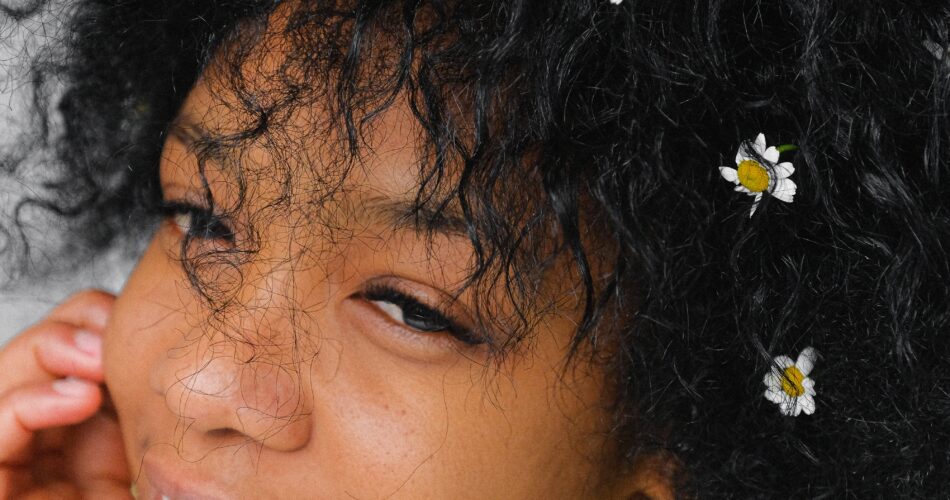
 Overview:
Overview:
broadcasting xyandanxvurulmus.3f4Y2eiRYLhZ
Wow, amazing weblog format! How lengthy have you been blogging for?
you made running a blog glance easy. The entire look of
your website is great, as smartly as the content!
You can see similar: ecommerce and here sklep
Hello, i feel that i noticed you visited my weblog so i got here to
go back the prefer?.I’m attempting to find issues to
improve my web site!I assume its ok to use some of your concepts!!
I saw similar here: najlepszy sklep and also here: ecommerce
Your way of describing everything in this article is actually good,
all be able to without difficulty know it, Thanks a lot.
I saw similar here: Ecommerce
My spouse and I stumbled over here different web address and thought I might check things out.
I like what I see so now i am following you. Look forward to
finding out about your web page yet again. I saw similar here: Sklep online
It’s very interesting! If you need help, look here: ARA Agency
It’s very interesting! If you need help, look here: ARA Agency
can i buy metformin in mexico
Your comment is awaiting moderation.
ремонт телефона
Your comment is awaiting moderation.
Профессиональный сервисный центр по ремонту бытовой техники с выездом на дом.
Мы предлагаем: сервисные центры в москве
Наши мастера оперативно устранят неисправности вашего устройства в сервисе или с выездом на дом!